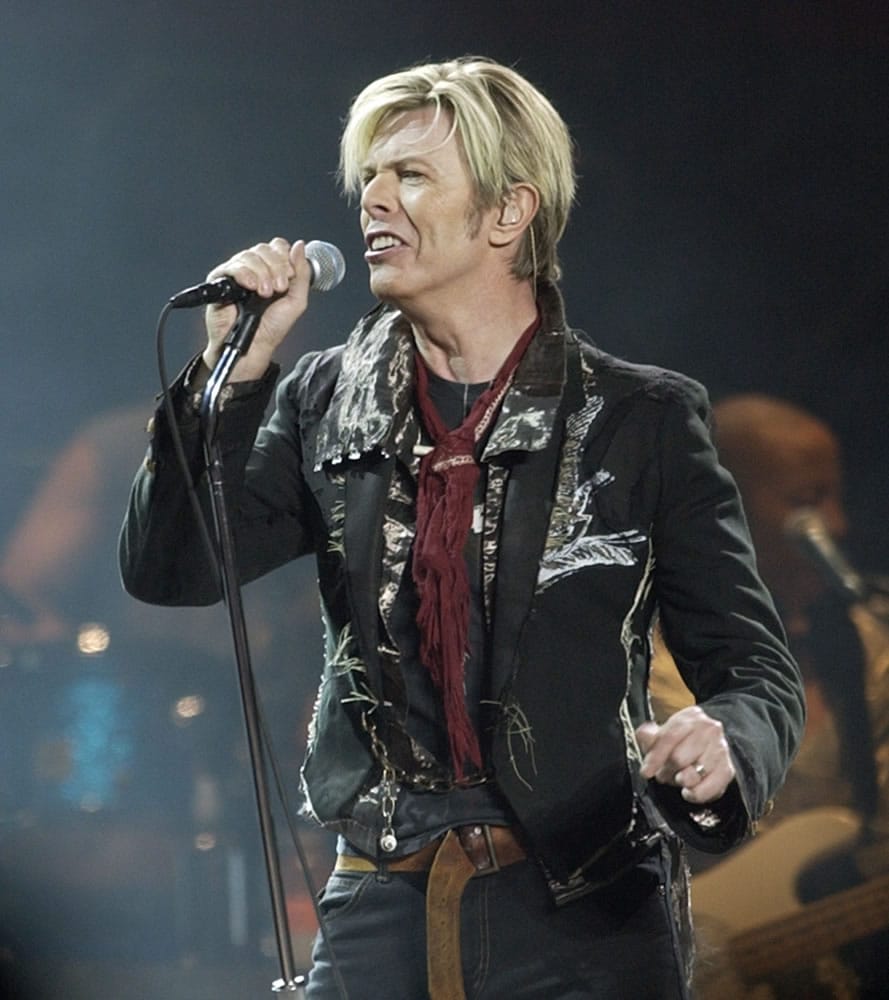It was hardly a coincidence that David Bowie named his greatest hits collection “Changes.”
Bowie changed musical styles, fashion, even his name — he was born David Jones — in a relentless exploration of the artistic muse. More than any one sound or song, that shark-like ability to keep moving forward defined him.
Even his exit was an artistic statement. He released a striking video last week for his new song, “Lazarus,” that depicts him in an institutional bed, his eyes covered in gauze.
“Look up here, I’m in heaven,” he sings in the song’s opening. The song, like the elegaic “Where Are We Now?” from 2013, has him confronting issues of mortality.
We just never knew how close the end was. When it came Jan. 10, Bowie had long since retreated from public view. He’d released no new music for a decade before 2013 and the subsequent “Blackstar,” released Jan. 8. He gave no interviews in his last decade, and kept his 18-month cancer fight private.
Bowie literally seemed from another world in his early years. “The Rise and Fall of Ziggy Stardust and the Spiders from Mars” was a concept album about an alien bisexual rock star. With his makeup and orange hair, Bowie participated fully era’s excess.
Bowie wasn’t the first artist to make stylistic shifts, but few did it with such aplomb. He delved into blue-eyed soul with his John Lennon collaboration, “Fame.” He moved to Berlin to explore a minimal, industrial sound with collaborator Brian Eno. And in the mid-1980s era of Big Albums, Bowie appeared in a suit with the invitation, “Let’s Dance.”
That album, which also included the hits “Modern Love” and “China Girl,” really marked the end of his mainstream success.
Personally, two recordings from 1977 will always stick out. One was Bowie’s duet with Bing Crosby. Crosby sang “The Little Drummer Boy,” while Bowie sang “Peace on Earth” in counterpoint.
That same fall, Bowie released “Heroes” from his sessions with Eno.
“We can be heroes,” he sings, “just for one day.”
David Bowie had more than a day.



